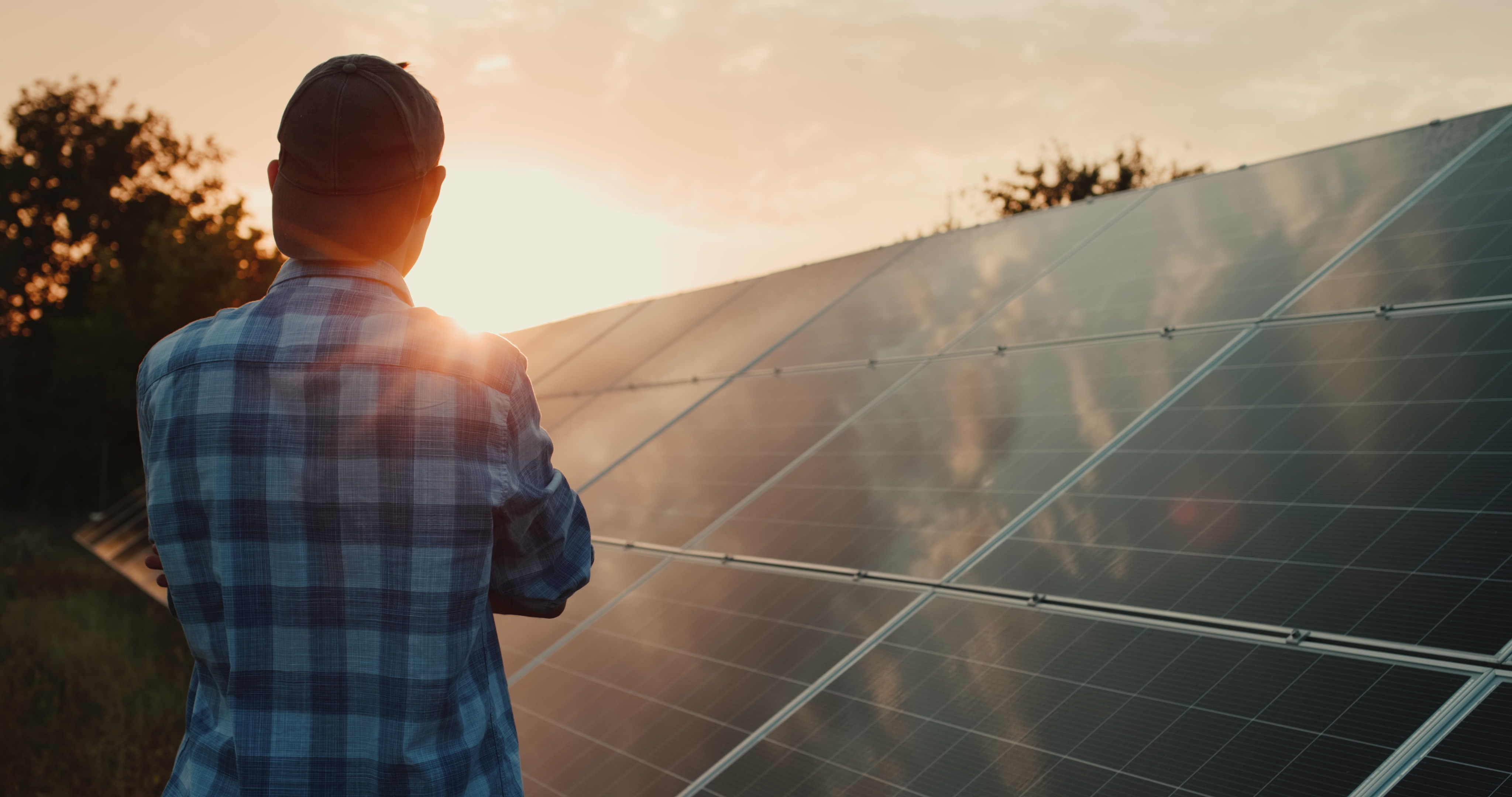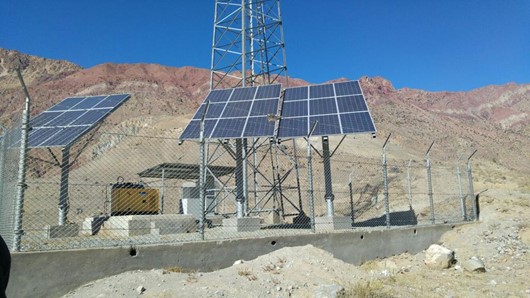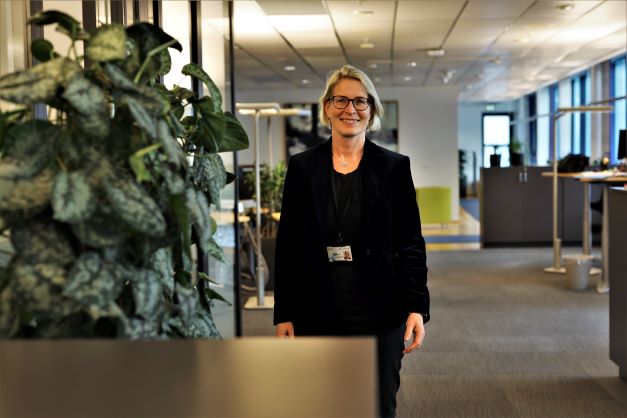
Adopting a common vision for a sustainable and greener tomorrow
Safeguard
Safeguarding planet, people and data in the digital world and beyond
Safeguard means that Telenor constantly raises the bar for the safety, security and privacy for our customers, partners and employees, as well as the health of our planet to drive positive, long-term change.
The citizens of Pakistan already face the impacts of climate change in the form of extreme weather, reduced agricultural productivity, water shortages, and more. While Pakistan isn’t a major contributor to greenhouse gases, all efforts must be made to slow changes in weather.
To better understand the climate and environment situation in the country, Cecilie Heuch, EVP and Chief People and Sustainability Officer at Telenor Group, spoke to Irfan Wahab Khan, CEO of Telenor Pakistan.
According to internal estimates conducted by Telenor Pakistan's Power Planning Team, the telecom industry alone burns around 80 million liters of diesel annually due to shortfall of grid supply, which results in 206 thousand tons of carbon emissions. The indirect emissions from use of grid power are significant too, owing to the fossil fuel intensive local energy mix. While the government’s efforts and commitment – such as National Broadband Policy 2021 that includes carbon reduction targets for telecom companies – are commendable, the private sector must join hands in this effort to have a meaningful impact. Telenor Pakistan welcomes this policy development, which is well aligned with their climate and environment ambitions.
Cecilie: Irfan, what is Telenor Pakistan doing to reach Telenor’s 2030 climate ambitions?
Irfan: Network power remains the primary contributor towards our carbon footprint. Transformation of our network is crucial in meeting our 2030 targets, part of which is to reduce CO2 emissions by 50%, (baseline 2019) by the year 2030, in line with the Telenor Group’s commitment to Science Based Target initiative. This includes ambitions related to both network and office buildings infrastructure. Thunderbolt, our flagship energy program, will enable us to produce and conserve clean energy by deploying solar solutions with Lithium-ion batteries. Almost 33% of our sites are now equipped with the Lithium-ion technology, and we are planning to upgrade 550 sites annually for the next two years. Importantly, 17% of our built sites have already been converted to primarily rely on renewable energy.
The impact from Thunderbolt is promising, but there’s still a long way to go. I find optimism in knowing that Thunderbolt has resulted in 6,072 tons of CO2 savings in 2020 and 16,869 tons in 2021 – a progressive improvement, and dare I say, an impressive one for the efforts our local teams have taken.

Cecilie: What is the opinion of climate change by customers in Pakistan and how is Telenor Pakistan responding to these opinions and expectations?
Irfan: The foundation to solving a problem truly lies in realizing and acknowledging that it exists, and that comes through awareness. The Pakistani population is already dealing with the consequences of climate change in the form of weather-related natural disasters such as flash floods, heat waves, and changing weather patterns affecting agricultural activities. With this backdrop, and with the unprecedented focus of the government on the topic, awareness about climate change is (albeit gradually) developing. There are upcoming policies and regulations such as those around the wheeling of renewable electricity, which is the use of a distribution system through power distribution companies, for the transport of electric power generated through renewable resources from the producer to the consumer. And then there are initiatives such as the renowned 10 Billion Tree Tsunami Project, whereby the government has set out to plant 10 billion trees by the year 2023.
For Telenor Pakistan, our vision is clear – to empower societies by providing seamless connectivity and a reliable digital journey to our customers, in an environmentally responsible and sustainable manner. Besides transforming our network, we have also implemented various initiatives to contribute to reduction in our carbon emissions. With an operational excellence model, office space optimization and fleet reduction, Telenor Pakistan has reduced 35% of its carbon emissions from some of the more efficient operations of its facilities since 2019. We’re also considering enhancement of our reliance on solar energy for Telenor Pakistan’s headquarters up to 100% through a power purchase agreement, case approval for which is under review.

Cecilie: What do you believe is needed from the telecom industry in general to achieve the UN’s 2030 climate goals?
Irfan: While the government remains an active proponent and supporter to reduce carbon emissions on a large scale, I cannot emphasize enough that this is a goal that requires collective efforts across the board, cutting across multiple industries. I strongly believe this is one of the core areas where we need to unite our voices for advocacy.
Similarly, the telecom sector must also lobby for pushing favorable policy frameworks that enable large scale renewable energy projects such as, the National Electric Power Regulatory Authority’s (NEPRA) Wheeling of Power Regulations. Under this regulation, a power generation company can sell its electricity to any Bulk Power Consumer (BPC) anywhere in the country using the national power distribution system operated by power distribution companies (DISCOs). The effective implementation of the Wheeling Policy and the support of the government authorities is required to jumpstart the wheeling projects for telecom sector.
While highly competitive, the telecom industry in Pakistan most of all needs to adopt a common vision to create a sustainable and greener tomorrow – for our customers, our citizens, for you, for me and the generations of the future.